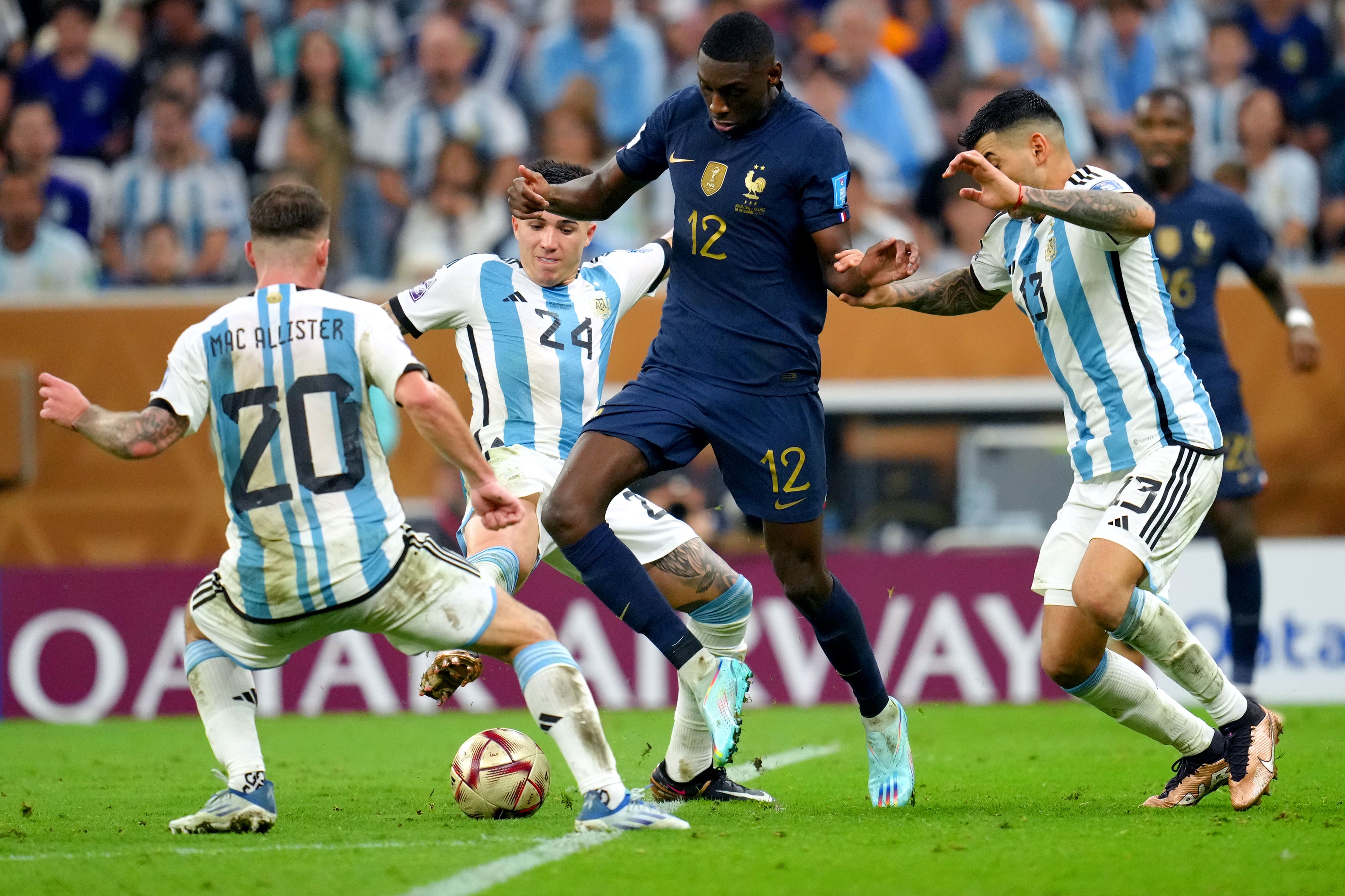Player welfare must be key consideration in new calendar, union claims
Fifpro has called for ‘a different mentality towards player welfare’

Your support helps us to tell the story
From reproductive rights to climate change to Big Tech, The Independent is on the ground when the story is developing. Whether it's investigating the financials of Elon Musk's pro-Trump PAC or producing our latest documentary, 'The A Word', which shines a light on the American women fighting for reproductive rights, we know how important it is to parse out the facts from the messaging.
At such a critical moment in US history, we need reporters on the ground. Your donation allows us to keep sending journalists to speak to both sides of the story.
The Independent is trusted by Americans across the entire political spectrum. And unlike many other quality news outlets, we choose not to lock Americans out of our reporting and analysis with paywalls. We believe quality journalism should be available to everyone, paid for by those who can afford it.
Your support makes all the difference.World football’s players’ union Fifpro has warned of the “urgent” need to protect player welfare in a new schedule for the international game.
The threat of player burnout around the winter World Cup in Qatar has highlighted the issues to consider as a new calendar of competitions is negotiated to replace the current deal which ends in the summer of 2024.
Fifpro’s report on player workload ahead of the tournament highlighted the number of matches played by top-level players, many of them back-to-back without a rest period, while the World Cup itself began just seven days after a club game for some Premier League players and ended eight days before the Boxing Day fixtures.
Fifpro general secretary Jonas Baer-Hoffmann told the PA news agency: “It’s probably the number one topic players talk to our unions about – that we need to find better balance in the schedules and give them more time to recover.
“We’ve argued for many years that we need a minimum off-season break, a minimum mid-season break, regulations that manage back-to-back matches. We need a different mentality towards player welfare.
“We need to look at physical and mental wellbeing not purely from a performance perspective, but from a human perspective, so they can have long careers, healthy careers, that they can play at their top ability when it matters most.
“So far all the conversations are based on improving or scaling competitions, rather than focusing on, ‘What does a balanced calendar look like?’ For domestic and international competitions, but also for health and wellbeing of the players. That’s always taken the back seat to the commercial interest.
“For this next calendar we urgently need agreements to provide those minimum protections for players, that allows a club to know you have your player at full capacity and allows the player to play the national team matches that are some of the highlights of their careers.”
When Liverpool were handed a Saturday lunchtime kick-off last season following a midweek Champions League semi-final, manager Jurgen Klopp said: “The schedule, and how people use the fame in the moment – Liverpool is hot and everyone wants to see them – they couldn’t care less. It’s just not OK.”
Arsenal’s Beth Mead and Vivianne Miedema are among seven Women’s Super League players to suffer anterior cruciate ligament injuries this season and manager Jonas Eidevall warned on Tuesday of the need to be “very smart in the way we grow the women’s game”.
Sarina Wiegman, Mead’s coach with England, added: “In general for top players the schedule is too much.”
Baer-Hoffmann continued: “Unless we get to a negotiated solution between competition organisers, this problem will only continue.
“Top-level talent will not be available when the clubs and the countries actually need them, and players will almost be pushed into a situation where they have to choose where they can participate.
“It’s striking that it might come to this kind of scenario before we can come to a balanced solution. That shows what kind of problem we have in the governance of football these days.”
Those concerns echo England Test cricket captain Ben Stokes’ one-day international retirement last year, with a statement that “three formats are just unsustainable for me now”.
Fifpro’s Alexander Bielefeld told PA: “I think the situation in football is actually worse than in other sports.
“We have done some research where we compared the safeguards and regulations in US sports and in football – and in football there’s basically, internationally, the complete absence of any safeguards.
“It’s really this overlapping competition calendar between domestic leagues and confederations and FIFA – there are too many opposing interests.”
Fifa has been contacted for comment.
Last year the world governing body sparked widespread criticism with a proposal to hold the World Cup every two years instead of every four, but Baer-Hoffmann noted: “In that same proposal was a one-month mandatory summer break.
“When we talk to the leagues they have a growing interest to put safeguards in place. So the conversation has already shifted, the arguments are cutting through.
“The problem is now you have quite a complex negotiation where you have several competition organisers with various legitimate interests, and then the players in the middle of it.
“I think the next three to six months will determine how that goes, but we have to be mindful that unless there is some common understanding, there’s going to be quite a bit of conflict around this.”

Join our commenting forum
Join thought-provoking conversations, follow other Independent readers and see their replies
Comments